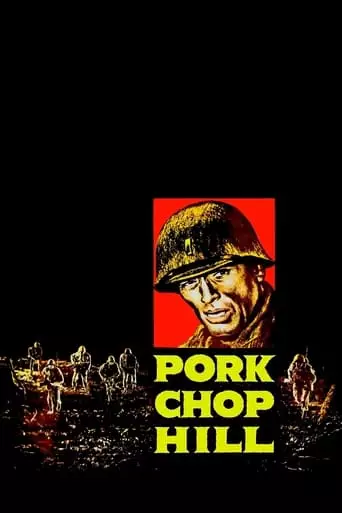
Pork Chop Hill (1959) Watch Online Free
Korean War, April 1953. Lieutenant Clemons, leader of the King company of the United States Infantry, is ordered to recapture Pork Chop Hill, occupied by a powerful Chinese Army force, while, just seventy miles away, at nearby the village of Panmunjom, a tense cease-fire conference is celebrated.
Pork Chop Hill is a 1959 war film directed by Lewis Milestone, renowned for his earlier work on All Quiet on the Western Front. The film is based on the true events of the Battle of Pork Chop Hill during the Korean War in 1953. It stars Gregory Peck as Lieutenant Joe Clemons, who leads a company of U.S. infantrymen in a grueling and ultimately futile attempt to capture and hold a strategically insignificant hill against a much larger Chinese force.
The narrative unfolds over several days, highlighting the soldiers’ experiences as they face relentless combat, harsh conditions, and the psychological toll of warfare. The film delves into the complexities of military command, the moral ambiguities of war, and the personal struggles of the men involved. Through its realistic portrayal of battle and its focus on the human aspect of warfare, Pork Chop Hill offers a poignant commentary on the futility and tragedy inherent in armed conflict.
Pork Chop Hill underscores the senselessness of war, particularly when lives are sacrificed for objectives of minimal strategic value. The film portrays the soldiers’ efforts to capture a hill that holds little tactical importance, emphasizing the tragic waste of human life in such endeavors. This theme resonates with the broader anti-war sentiment prevalent in mid-20th-century cinema.
The film explores the complexities of military leadership through Lieutenant Clemons’ character. His decisions, often made under immense pressure, reflect the challenges of commanding men in combat. The narrative examines the burden of command, the moral dilemmas faced by leaders, and the impact of their choices on the lives of their subordinates.
At its core, Pork Chop Hill is a story of brotherhood among soldiers. The film highlights the deep bonds formed in the face of adversity and the ultimate sacrifices made for comrades. It portrays the soldiers’ unwavering commitment to each other, even when confronted with the grim realities of war.
The film delves into the mental and emotional toll of warfare on soldiers. It depicts the stress, fear, and trauma experienced by the men, offering a candid look at the psychological challenges of combat. This theme adds depth to the characters, portraying them not just as warriors but as individuals grappling with the horrors of war.
Upon its release, Pork Chop Hill was lauded for its realistic depiction of combat and its unvarnished portrayal of the Korean War. Critics praised the film for its authenticity and the strong performances of its cast, particularly Gregory Peck. The film stands out as one of the most realistic battle films and is considered a classic in the war genre.
The film’s focus on the Korean War, often referred to as the Forgotten War, brought attention to a conflict that had been overshadowed by World War II and the Vietnam War. By highlighting the human cost of the battle, Pork Chop Hill contributed to a broader understanding of the Korean War’s impact on those who fought in it.
After watching Pork Chop Hill, you may feel a profound sense of respect and empathy for the soldiers who fought in the Korean War. The film’s unflinching portrayal of the realities of combat and the sacrifices made by individuals can evoke deep emotional responses. You might also experience a heightened awareness of the complexities of military leadership and the moral dilemmas faced by those in command. Overall, the film offers a thought-provoking and moving experience that lingers long after the credits roll.
